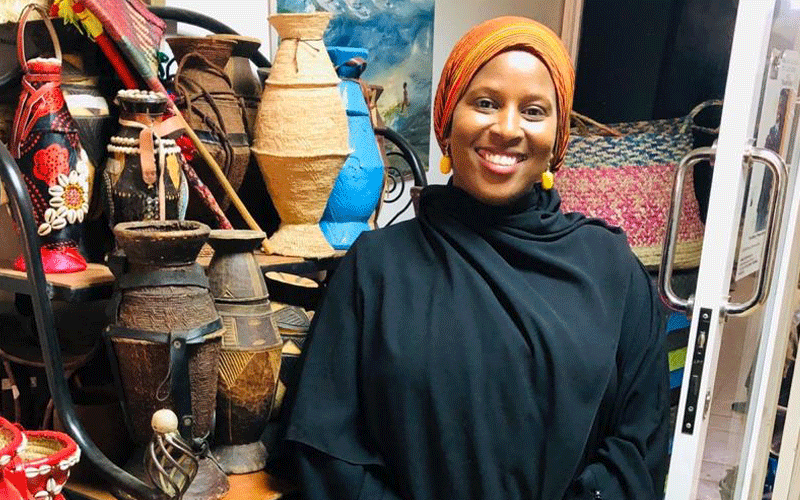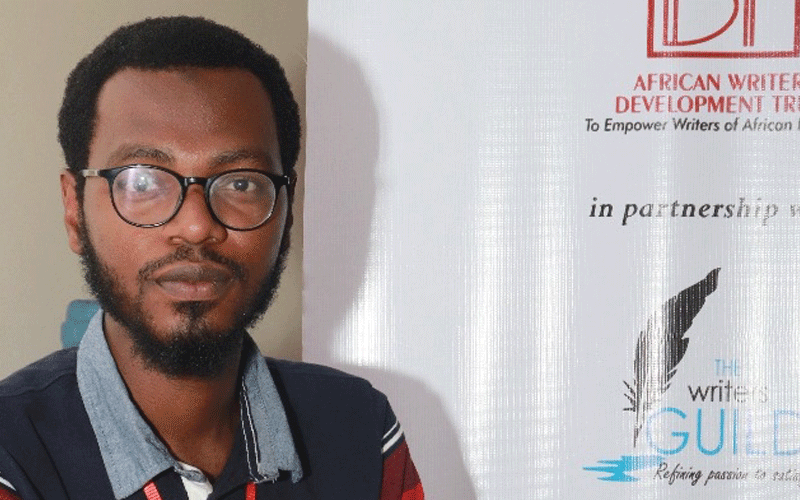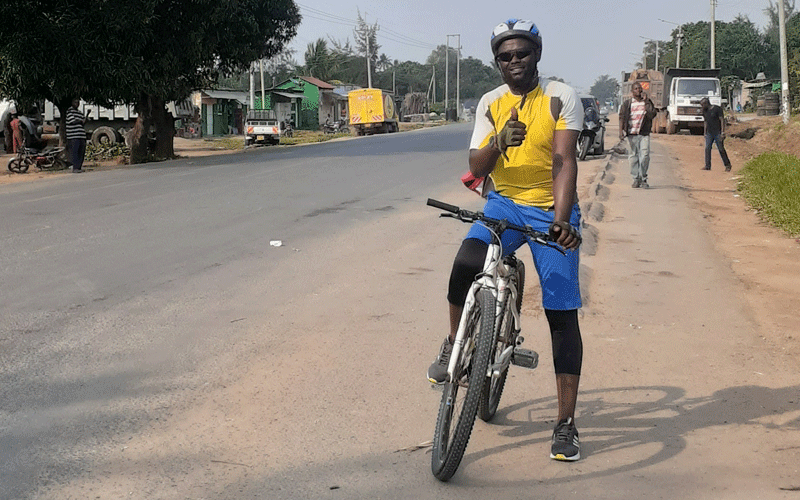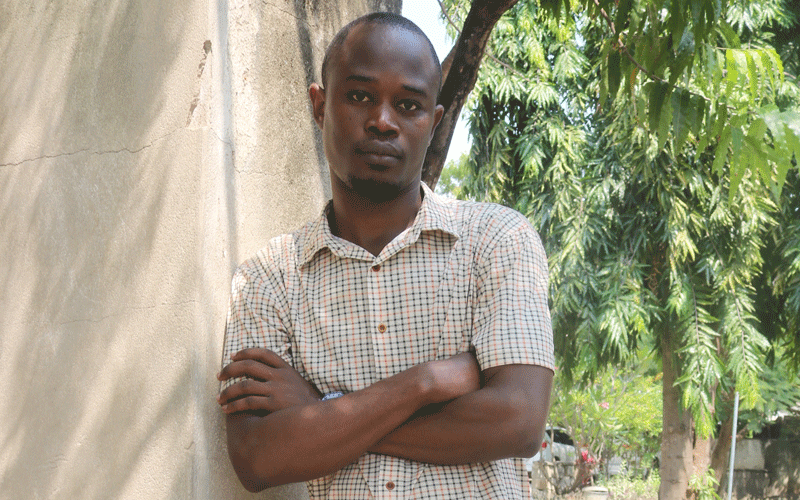Covid-19 pandemic hits the literary scene
By Jasmine Atieno, August 21, 2020The Covid-19 crisis has literally put the world on pause; and just like in many other industries, it has had a direct impact on writers and the whole literary sector, writes Jasmine Atieno
The Kenyan literary scenes had a lot planned out this year. The beginning of the year seemed ripe for many in the industry.
This was before Covid-19 pandemic threw a curve into the sector and the economy at large.
While early March held so much hope for the industry, the last part of the month ushered in a period of unprecedented uncertainty with the pandemic escalating and later the presidential decree to have a countrywide curfew and partial lockdown in a number of counties.
The first week of March unveiled the literary scene at the Coast with the Swahili Literary Festival taking centre stage, an interactive platform where literature and culture met.
It was here that writer and editor Abdulrahman “Abu” Ndegwa launched a Hekaya Arts Initiative’s publishing project, Kaskazi—a novel conceived by merging multiple voices in the Swahili coast telling one story.
“The decree by President Uhuru Kenyatta found me airborne from the African Writers Trust Publishing workshop in Kampala where we also did another launch of Kaskazi.
While most people had downplayed the pandemic for the better part of March, the presidential order, which saw foreigners in our flight prevented from disembarking at the Moi International Airport in Mombasa, marked the seriousness of the pandemic.
For the Kenyan citizens, the rigorous checks by health officials instilled the fearful reality that indeed, Covid-19 was not the virus we had ignored earlier,” says Abu.
He reckons that things changed really fast after that. “The world was in panic as people started dying faster than graves could be dug.
With this devastation came the staggering reality that we were looking at a new world order.

In a way, this pushed me to appreciate more the people in my immediate space, and this was also challenged by the fact that we could no longer convene as we used to.
I took to cycling in April and have been using my bike as a mobile library of sorts.
It might take time before things get to normal, but I feel books should always be in circulation whether libraries are open or not.
Every time a reader requests a book, it gives me so much joy to jump on the peddle and deliver.
Cycling and swapping books have made these uncertain times bearable for me,” shares the writer.
Lost in fear
Writer and campus student Masika Swaleh says when the pandemic hit home, she was lost in fear.
It was almost hard for her to even sit at her study table to focus on her writing.
“My thoughts were all about; what will become of our country? Are we really going to resume school any time soon; what would happen to our lives now that everyone is embracing the new normal?
A time came where I decided I needed to move on and make the best version of myself, regardless,” she tells Spice.
She adds that it was at that moment that she stopped watching Covid-19 updates and focused more on reading and trying out new writing prompts, so as to regain her writing flow.
“Due to the pandemic at hand, I have a great deal of time to utilise and hence I was able to write more, especially during the month of Ramadhan,” she shares.

Lubnah Said has been writing for 14 years now. She has authored three books Unbroken Wings, Dropped to the World and Adopted by Fate (biographies) and The Striving Soul, a collection of her random musings. She is also the founder of the writing network Creative Writers League.
“We usually hold writing trainings about three or four times a year for aspiring writers. With the pandemic, however, we couldn’t hold the trainings as per the norm.
The all important face-to-face interactions during the trainings are some of the things we had to compromise on.
In order to cope, we had to think outside the box and therefore, we introduced the online sessions.
Although the turnout was very low, it wasn’t as bad as I thought it would be. The sessions were still interactive and lively. At the end of the day, it was worth the try.
Now we’re just looking on how to make the trainings even better, so that we can be more prepared, skilled and flexible,” she shares.
Freelance writers in Kenya, adds Said, have always struggled to get opportunities that would value their work as well as pay them what they deserve. Most times, you either get one or none.
“I have been rethinking a lot on my writing career and what I really want to do for myself.
This year is really the time to stand up for yourself, get out of your comfort zone and do whatever it takes to grow, learn and be better,” she says.
Dashed dreams
Thomas Mlanda professionalised his writing craft three years ago by participating in literary events and networking, all to better understand the industry’s landscape.

He’s about to publish her debut book, which dwells on the life of his famous grandfather Kabwere wa Wanje.
“Due to the pandemic, I’ve had to cancel an event I was to host the Strathmore University Vice Chancellor designate Dr Vincent Ogutu and USIU-A International Relations assistant professor Dr Njoki Wamai for a public discourse.
I was expecting a lot more to come out of the event. Unfortunately, some of it may never see the light of day,” says the young writer, who also notes that there are few positives to the pandemic.
“For instance, writers and intellectuals are chroniclers of changes in human society and its development.
The pandemic is a succulent piece of raw material to use in the assessment of human society and the relevant parameters. The possibilities are endless and I’m taking it all within my stride,” he says.
Writer Eunniah Mbabazi, who started out as a poet, majors in short story fiction writing, bordering on mental health, personal conflict, grief and self acceptance. She also blogs weekly on her blog mbabaziafrica.com.
In May 2019, she published her first book Breaking Down, a collection of 11 short stories. Her second book If My Bones Could Speak hit the stores in July 2020.
“I’d like to say the pandemic has been a blessing in disguise. At the onset of the lockdown, I founded Between the Covers, an African literature-focused book club that has been the reason I read at least one book every month.

In addition, with the working at home rules, I have had more time to write more, which explains how my second book managed to come out in July.
I am learning to take breaks in between my writings, something I never did before.
This is because sometimes, I need to experience new things that are outside my home in order to rejuvenate my mind. But that has not been a walk in the park either,” says Mbabazi.
Thriving in isolation
There is a popular belief that writers mostly work in isolation and thrive in it, and one of the things the pandemic has brought about is ‘self isolation’, a perfect time for writers.
Writer Sahara Abdi shares: “I have had personal friends ring me up to ask how many books I have done since ‘I am just at home’.
I wish I could explain the mental anguish we are going through just like everyone else in the world right now.
This, however, is not to say that all writers are having it hard to write, no; but having to put food on the table and staying strong mentally to keep writing is not quite an easy thing,” she intimates.
Sahara runs a literacy programme dubbed Northern Voice Trust, an organisation whose objective is to create a reading culture in schools in northern Kenya.
But they were forced to pull down the curtains in March due to the Covid-19 pandemic. Their activities, including organising book festivals, were suspended.
Sahara’s hack through this season has been learning not to depend on one source of income, learning to pause, to be easy on herself and most importantly, to value human interaction.
“My latest published work is Araweelo, a children’s storybook I have done for the children in the pastoralist communities,” she intimates.
In February this year, Hassan Kassim was among an ensemble of 12 young African writers who took part in this year’s writer’s residency by African Writers Development Trust.
The culmination of the residency was Twaweza, an anthology of non-fiction African stories.
“There were two residencies, one in Nigeria held late last year and the second for Eastern and Southern Africans in Nairobi.
They started on a high note, but before we were done with the residency, there was an urgent call around the world to stop flights, so the foreigners had to be rushed out the country and the residency closed.
I was also one of the two Kenyan panelists for this year’s writers’ mingle at Goethe Institut, but that’s when public gatherings were banned,” says Hassan.
But he says that due to the new realities, he has become more introspective and the more time he has spent alone has helped him hone his craft, and he is even writing more now rather than being his normal procrastinating self.
